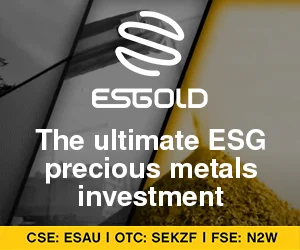In a significant move to bolster its manufacturing capabilities and enhance its global presence, Hop Lun, a leading designer and manufacturer of intimate apparel and swimwear, has announced the signing of definitive agreements to acquire two Moroccan companies. This strategic acquisition is poised to create a new manufacturing platform in Morocco, reflecting Hop Lun’s commitment to growth and innovation in the apparel industry.
The Acquisitions: A Closer Look
The transactions, expected to close in the fourth quarter of 2025, are set to include two key players in the Moroccan manufacturing landscape:
Tobago: Based in Casablanca, Tobago is a premium manufacturer specializing in corsetry, lingerie, and swimwear. Established in 1996, the company produces approximately 1 million pieces annually for various French and European brands. The founders of Tobago will remain involved during the transition period, ensuring continuity and expertise as Hop Lun integrates the company into its operations.
Chantelle Group’s Morocco Operations: This acquisition encompasses the Famaco and Atma manufacturing facilities, which are part of the globally recognized luxury lingerie brand, Chantelle. Founded in 1876 and headquartered in Paris, Chantelle’s Moroccan operations produce around 1.4 million pieces each year. Notably, Chantelle will continue to be a customer of Hop Lun post-acquisition, maintaining a collaborative relationship that benefits both parties.
A Commitment to Local Workforce and Growth
Erik Ryd, Executive Chairman of Hop Lun, expressed enthusiasm about the new acquisitions, stating, “We are thrilled to welcome the Moroccan teams into the Hop Lun family. This acquisition reflects our belief in the strength and potential of the local workforce, and our excitement about the opportunities ahead.” Ryd emphasized that Morocco presents a dynamic platform for growth, and Hop Lun is dedicated to investing in the future of the region.
The commitment to the local workforce is particularly significant, as it underscores Hop Lun’s strategy to leverage regional talent and expertise. By integrating these Moroccan companies, Hop Lun aims to enhance its production capabilities while fostering local employment and economic development.
Strategic Advantages of Moroccan Manufacturing
The decision to expand into Morocco is driven by several compelling advantages that the region offers. Jacob Kotzubei, Co-President of Platinum Equity, and Managing Director Matthew Louie highlighted the benefits of this strategic move. They noted that Morocco provides high-quality production capabilities, a skilled workforce, and faster replenishment cycles, which are essential for meeting the demands of European customers.
These advantages position Hop Lun to respond more effectively to market trends and consumer preferences, ultimately enhancing its competitiveness in the global apparel market.
Expanding Global Footprint
The Moroccan acquisitions mark Hop Lun’s fourth and fifth deals since Platinum Equity acquired the company in 2022. This series of strategic transactions includes previous acquisitions such as Lintas in Bangladesh, PH Garment in China and Bangladesh, and Rainbow West Apparel in Los Angeles. Each of these deals has contributed to expanding Hop Lun’s global footprint and enhancing its manufacturing capabilities across diverse markets.
With over 30,000 employees worldwide, Hop Lun is well-equipped to produce a wide range of products for major global retailers, as well as its own in-house brands. The company’s commitment to quality and innovation continues to drive its growth trajectory.
Conclusion
Hop Lun’s acquisition of Tobago and Chantelle’s Moroccan operations represents a pivotal moment in the company’s journey toward becoming a more integrated and agile player in the global apparel industry. By investing in Morocco, Hop Lun not only strengthens its manufacturing capabilities but also reinforces its commitment to local economies and sustainable growth. As the company prepares for the closing of these transactions in 2025, the future looks promising for both Hop Lun and the Moroccan manufacturing sector.




